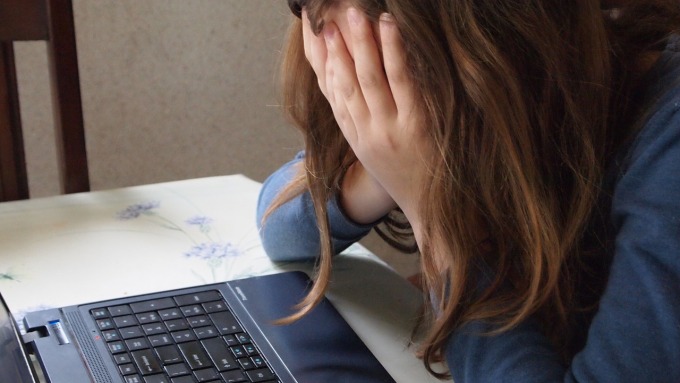When your child is the victim of cyberbullying or online harassment, there is nothing you want to do more than step in and make things right.
But it’s not always that easy.
Cyberbullying is complicated, and every situation is different. The content of the messages will have various degrees of severity, and the parties involved — the kids, parents and social officials — can make the situation easier to resolve, or in some cases, harder.
So it’s important for parents to know the best practices for dealing with the unpredictable, uncomfortable, and sometimes unrelentless situation of cyberbullying.
Taking Matters Into Your Own Hands
The emotional response to learning that your child is being bullied is enough to make parents jump into immediate action, but parents need to be mindful of how their response can affect their child’s life, as well as their own.
Two fathers in Minnesota learned this when they found themselves in the middle of a national news story, that left one father without his job, after getting involved with their children’s cyberbully situation.
Brad Knudson’s daughter received racist messages from Deron Puro’s two sons, prompting Knudson to call Puro to try and resolve the situation. Matters only got worse when Puro was unwilling to help and exacerbated the situation by leaving his own racist voicemail to Knudson.
Knudson was not silenced by Puro’s unwillingness to help. After reporting the situation to school and city officials, he took the matter into his own hands.
Fearing that his daughter would become depressed and emotionally drained by the continued harassment, Knudson recorded and posted a YouTube video where he called out the bullies and asked them to own up to their actions. In the video, that was close to six minutes in length, Knudson also played the voicemail he received from the boy’s father, Puro.
The video went viral, receiving almost eight million views, and caught national attention. The result affected both the boys and their father; Puro was fired by his employer, a financial firm where he worked as a contractor.
The Best Ways to Help
Knudson and Puro’s situation shows how cyberbullying affects parents just as much as their children and how important it is to resolve problems in a healthy and productive way.
What to do if your child is being bullied:
- Save the evidence.
- Report threats of harm to the police.
- Report the situation to the school.
- Don’t quit until the bullying has stopped.
- Don’t provoke the bully.
- Don’t seek revenge.
- If you know the bully’s parents and believe they will help resolve the situation, reach out to them.
What to say to your child if they are being bullied:
- Tell them not to blame themselves. No matter what may have happened there is no excuse for bullying
- Encourage them to talk to others about it. Don’t hold their feelings inside. And not just you, maybe there is a special teacher or counselor at school they feel comfortable around, or friends. But don’t bully the bully with friends, keep the conversation about your feelings.
- Focus less on the situation and more on the things you love.
- Understand that the bully has issues that go deeper than the surface situation, they may have trouble at home or at school. Teach empathy, but also strength, no one should accept being bullied.
What to do if your child is being a bully:
- Explain the seriousness of cyberbullying.
- Establish clear usage rules.
- Set limits.
- Remove access to private online communication.
- Teach them to manage their stress in other ways.
- Set a good example. (Bullying is a learned behavior, so be mindful of how you treat people in real life and online.)
- Seek the deeper problem or stress that is coming out as bullying.
Be Proactive and Help Prevent Cyberbullying
The best way to deal with cyberbullying is to stop the situation early. Use a system for monitoring your child’s social media to stay in touch with what is happening in their online world.
With an app like MamaBear, The Ultimate Parenting App™ available for free on iPhone and Android devices, parents can easily connect and monitor the conversation on their child’s social media streams. Being aware and informed as a parent, and getting involved before there is an issue, will always be the best way to prevent a more drastic and potentially dangerous situation from occurring.
Previous Posts
 Table Talk Topic: Are You Doing Your Child’s Allowance All Wrong?
Table Talk Topic: Are You Doing Your Child’s Allowance All Wrong?
Do You Know Enough About Cyberbullying to Protect Your Children?




